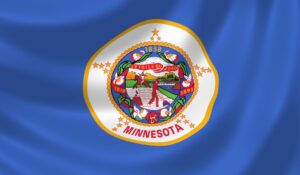Farm Financial Management FAQs
Farm financial management is a comprehensive process that involves planning, tracking and analyzing financial resources to ensure profitability, sustainability and stability of operations. Effective management includes a robust accounting program focused on budgeting, cost control, cash flow management, projections, and informed investment decisions. Armed with accurate financial information, farmers can make important decisions about:
- investing in crops and livestock,
- managing debt,
- maximizing profits and
- the pros and cons of loans and government programs.
AgriBuilder creates the most value for agricultural businesses by integrating:
- intuitive accounting software (Xero)
- seamless and actionable farm management software (Figured) and
- ongoing advice and support from seasoned agriculture financial consultants.
A robust farm accounting program helps farmers manage finances, expenses and income while seamlessly integrating with your farm management system. In addition to these necessities, your farm accounting software must help you streamline the process for annual tax filings. Check out these common signs that your accounting system is broken.
An effective farm accounting process delivers updated financial reports that empower decision making. There are three standard financial statements including the balance sheet, income statement and statement of cash flow. The balance sheet conveys details about the farm’s assets, liabilities and overall net worth. The income statement reports revenues and expenses over a specific period of time, and the cash flow statement highlights the movement of cash.
Adams Brown regularly reviews financial reports with agriculture clients to monitor operations, assess profitability, identify trends for planning and make informed decisions. Together, we also review:
- accounts payable and receivable,
- budget versus actual,
- break-even analysis,
- cost of production,
- crop gross margin,
- depreciation schedules,
- inventory breakdowns by field and/or crop
- market value balance sheet and
- tax projections.
A holistic approach to reviewing your financial and farm management data ensures your ability to make sound business decisions for your farm while planning for future initiatives, investments and goals.
Additional farm financial management insights:
Adams Brown regularly reviews financial reports with agriculture clients to monitor operations, assess profitability, identify trends for planning and make informed decisions. Together, we also review:
- accounts payable and receivable,
- budget versus actual,
- break-even analysis,
- cost of production,
- crop gross margin,
- depreciation schedules,
- inventory breakdowns by field and/or crop
- market value balance sheet and
- tax projections.
A holistic approach to reviewing your financial and farm management data ensures your ability to make sound business decisions for your farm while planning for future initiatives, investments and goals.
Additional farm financial management insights:
Understanding your farm’s value is important for various reasons, ranging from financial planning to strategic decision-making. Whether you are buying, selling, planning your estate or evaluating operational success, knowing what your farm is worth can provide critical insights to help you achieve your goals. A thorough farm valuation will help you conclude the true value of your farm.
Map of Minnesota (MN)
Minnesota Agriculture Accounting Services
- Agreed Upon Procedures
- AgriBuilder (proprietary integrated accounting and farm management solution)
- Budgeting & Forecasting
- Business Tax Planning & Compliance
- Business Transformation
- Cash Flow Management
- Financial Statement Audits
- Outsourced Accounting
- Succession Planning
- Tax Planning & Compliance for Farm Owners
- Wealth Planning
About Minnesota Farming
Minnesota farming is a vibrant and essential industry within the state, earning it the nickname “Land of 10,000 Lakes.” With a diverse range of agricultural products, Minnesota farmers contribute significantly to the economy and play a vital role in the nation’s food production. The state’s agricultural landscape is characterized by its emphasis on corn and soybeans, which are major crops used for animal feed, ethanol production and food processing.
Minnesota’s farmers are committed to sustainability and conservation practices. They employ techniques like no-till farming, cover cropping and precision agriculture to reduce soil erosion, conserve water and promote soil health. Family farms form the backbone of Minnesota’s agricultural sector, with many farmers being part of cooperatives that enable collective marketing and resource sharing.
The state’s agricultural organizations, including the Minnesota Farm Bureau, provide support and advocacy for farmers. Research institutions like the University of Minnesota’s College of Food, Agricultural and Natural Resource Sciences contribute to advancements in agricultural practices through research, education and extension services.


